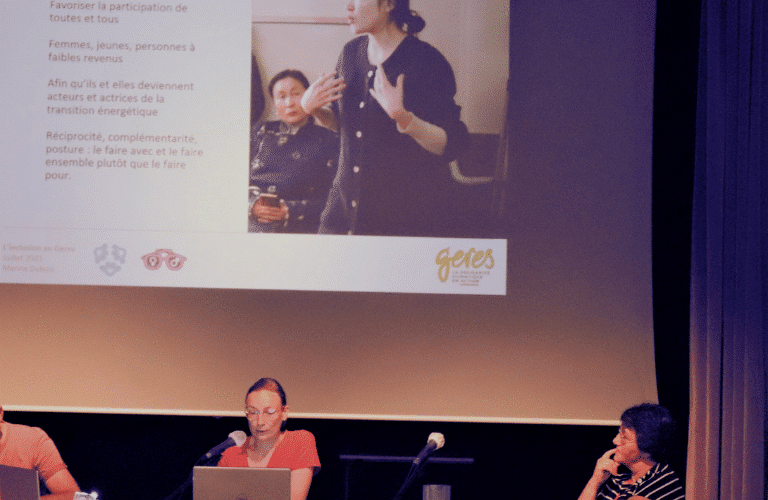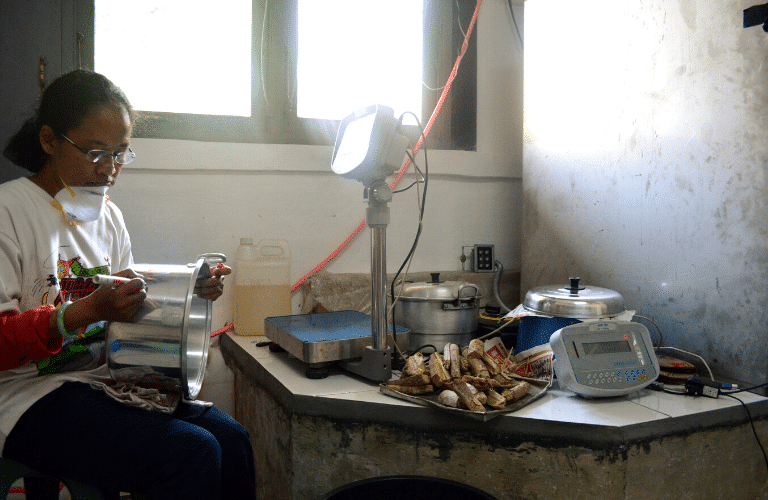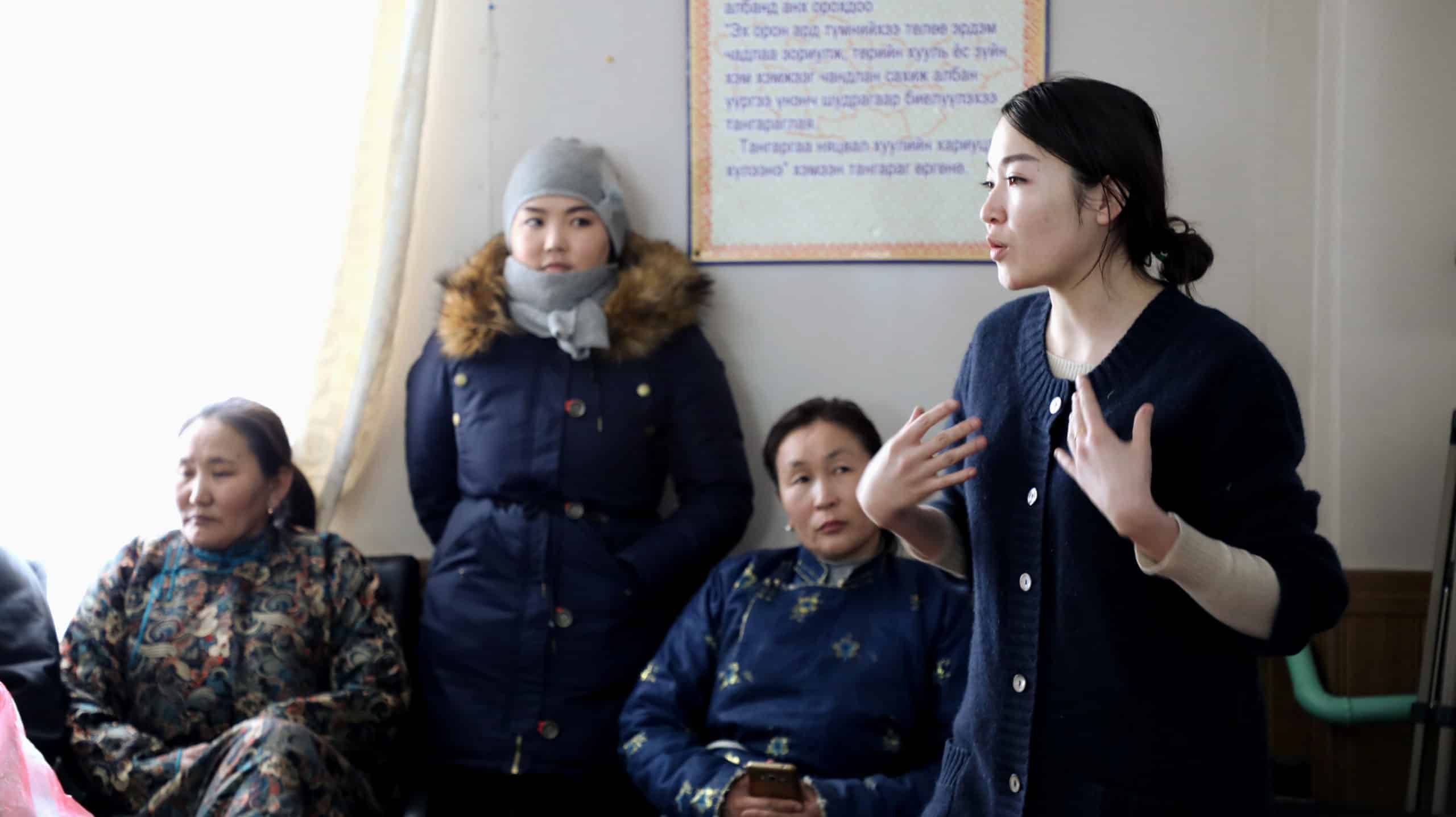Geres hosted by the United Nations Human Rights Council to share its gender approach to energy
For the 47th session of the Human Rights Council, Geres was invited to a conference involving several expert members of the UN’s Human Rights bodies and mechanisms and civil society organizations working in the fields of energy, climate change and women’s rights.
Objective: To share our approach to gender in the field and put forward recommendations.
Background
Organized by the Global Initiative for Economic, Social and Cultural Rights and supported by Oxfam Mexico and the Friedrich Ebert Foundation, the online event aimed to create a genuine space for discussion where civil society organizations could share their experiences in the field and encourage mutual learning.
At a deeper level, there is a desire to strengthen links between experts and militants and promote the establishment of networks and policies with a view to obtaining accurate data on gender issues in the energy sector.
In the presence of Melissa Upreti and Dorothy Estrada-Tank (both members of the United Nations Working Group on the issue of discrimination against women) and Heisoo Shin, (Member of the United Nations Committee on Economic, Social and Cultural Rights), Marina Dubois, Geres Inclusion and Energy Programme Officer, joined in the question-and-answer session.
On the agenda: solutions and concrete recommendations for ensuring women’s active and significant contribution to a fair energy transition.

TRANSCRIPTION OF THE INTERVIEW
1/ Question — Geres is one of the few international non-governmental organizations seeking to mobilize communities and policy-makers around “climate solidarity” in Europe, Africa and Asia, making the energy transition a key focus. What does mainstreaming gender in the energy transition mean for you?
M.D (Geres) — In our view, action is needed at every level to ensure that gender issues are taken into account in the energy transition.
To start with, stereotypes need to be combated right from school and university level to ensure that girls do not hesitate to sign up for energy engineering courses. At the same time, the teaching staff also need to understand that women have just as much legitimacy as men in that field!
At Geres, we are taking an increasing interest in the youth audience and vocational training sector to boost change as far upstream as possible.
In Mali, Geres was recently invited to a cultural and artistic fusion festival to raise young people’s awareness of the role of energy in the agricultural value chain. Its involvement included a training session for young women and young men on photovoltaic energy.
Women need to be involved right from the design stage of technologies to make sure that their specific needs and aspirations are heard and that imaginative solutions are adopted on a long-term basis.
We know too that women must play a part in rolling out energy solutions because they are known and acknowledged as the best influencers when it comes to energy products, given that they are the primary users.
Read the article: Women’s entrepreneurship, a source of energy in rural Myanmar

It is clearly imperative to promote women as decision-makers within energy projects.
Their participation must be ensured and their voices heard to ensure the relevance and effectiveness of any planned operation.
Find out more about the project to promote women’s role in rural economic development in Mongolia
Not forgetting the need to pay special attention to women heads of single-parent families, who make up the majority of low-income households around the world, so that they are not left out.
And finally, making sure that data broken down by sex are collected to inform the formulation of energy policies.
2/ Question — How is Geres taking up the challenge of women’s participation in the field, in communities where gender often has a complex dimension?
M.D (Geres) — We begin by raising our team’s awareness. First of all, they need to understand what gender means, how it differs from physiological traits, how it is a social construct varying from one country to another, which may evolve over time and which also depends on each person’s perceptions.
The use of participatory methods such as games is a good way to get across a better understanding of what gender means!
Once the notion has been grasped, we work together to identify how gender leads to inequalities between women and men, which factors influence and explain those inequalities and how they result in constraints on relations between women and men.
Because, when we have more understanding of the gender dimension of the lived situation of the communities with which we work, we are better equipped to identify opportunities to improve relations between women and men.
After that, we only need to pull the appropriate levers to benefit everyone.
Looking for models within the communities or nearby is an effective strategy for encouraging girls and women to take part.

Men need to be mobilized to take part in promoting women’s participation, by showing them how their whole family will benefit: that’s a key factor in success.
At Geres, promotion of women’s entrepreneurship has been identified as a strategic means of reducing inequalities between women and men in connection with our operations.
In Myanmar for example, we have begun to create a network of women to retail energy solutions in the dry zone of Myanmar, by facilitating peer-to-peer learning and developing sales kit manuals.
Find out more about the access to sustainable energy project in rural Myanmar
We could also mention Mali, where we are providing appropriate support and access to finance for women entrepreneurs. Finally, in Morocco, we are going to facilitate the establishment of a network of women sellers of highly energy-efficient ovens and work with financial institutions to develop attractive credit solutions and encourage the acquisition of those ovens.
3/ Question — What, in your view, would be the key policy recommendations we should take up?
M.D (Geres) — For us, it is vital to encourage gendered contextual analysis to help understand its complex dimension and identify the right change levers.
Empirical research also needs to be supported so that more evidence can be gathered to demonstrate the advantages of mainstreaming gender in the energy transition.
In conclusion, I also see this event as a very good tool for mutual aid, sharing, drawing inspiration and mobilizing. Organizing a large-scale campaign to promote women leaders in the energy transition is a way to make progress in effectively combating stereotypes and inspiring the girls and women of the world to join in the mobilization for a fair, sustainable energy transition.
At Geres, we began this year by spotlighting the women committed to climate solidarity within our teams and partners. That was a great boost for them and our teams. We need to go on making their role more visible!
——-
The event, held on 14 July 2021, brought together:
Representatives of the Human Rights Council :
- Melissa Upreti, member of the Working Group on discrimination against women in law and practice
- Dorothy Estrada-Tanck, member of the Working Group on discrimination against women in law and practice
- Heisoo Shin, member of the United Nations Committee on economic, social and cultural rights.
Participants from civil society organizations:
- Irene Giner-Reichl, Global Women’s Network for the Energy Transition
- Debajit Palit, TERI, The Energy and Resource Institute
- Lidija Živčič, member of the EmpowerMed consortium to which Geres also belongs.
- Marina Dubois, Geres Inclusion and Energy Programme Officer
Moderators
- Magdalena Sepúlveda Carmona, Executive Director of GI-ESCR
- Alexandra Haas, Executive Director, Oxfam Mexico
WOULD YOU LIKE TO TAKE ACTION
AND SUPPORT WHAT WE DO?
Tell us who you are and find your means of action.
